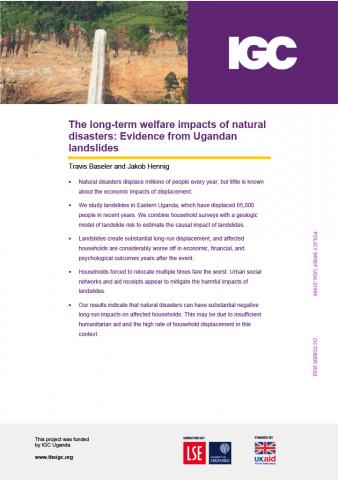-
Baseler-and-Hennig-Policy-brief-October-2022.pdf
PDF document • 475.81 KB
- Natural disasters displace millions of people every year, but little is known about the economic impacts of displacement.
- We study landslides in Eastern Uganda, which have displaced 65,000 people in recent years. We combine household surveys with a geologic model of landslide risk to estimate the causal impact of landslides.
- Landslides create substantial long-run displacement, and affected households are considerably worse off in economic, financial, and psychological outcomes years after the event.
- Households forced to relocate multiple times fare the worst. Urban social networks and aid receipts appear to mitigate the harmful impacts of landslides.
- Our results indicate that natural disasters can have substantial negative long-run impacts on affected households. This may be due to insufficient humanitarian aid and the high rate of household displacement in this context.




